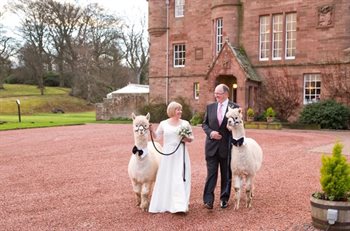 The nature of civil marriage has changed dramatically since it was first introduced in Scotland in 1940.
The nature of civil marriage has changed dramatically since it was first introduced in Scotland in 1940.
Historically, civil marriages were governed by strict rules, and could only take place in the office of an authorised registrar, on Monday to Friday, in a short ceremony which focused mainly on the legal requirements of marriage.
However, today this couldn’t be further from the case. The rules have changed and there is much greater flexibility – there are almost as many different kinds of civil marriage ceremony as there are couples.
Registrars understand the diverse needs of people today, and can reflect the culture and social mix in our communities.
As a result, many civil marriages now include personal touches such as live music, readings and additional vows, making the ceremony unique to the couple.
A modern registrar will encourage couples to make their own contributions to the ceremony, and there is huge scope to include friends, children and family members. Guests can also be encouraged to take an active part in the ceremony, and these changes make everyone feel really involved.
Although traditionally civil marriages were entirely non-religious, there is now no set format and religious context can be included if the couple wish.
If you are considering a civil marriage, you may want to think about hand fasting, sand ceremonies, remembrance candles or the well-known Scottish tradition of drinking from the Quaich, all of which are now possible.
Our wedding guide illustrates a wide range of services and facilities that are available to you.
Civil marriage ceremonies take place almost anywhere, and at times including Saturdays and Sundays. Local authorities no longer need venues to be licensed for a wedding, and this freedom allows for much greater choice of venue – you can be married in a hotel, castle, beauty spot, on a beach, in your garden or even on a boat; essentially any location that is special to you.
The role of the registrar is also unique – only registrars can guide you through the whole marriage process, including:
- choosing a venue
- submitting marriage notices and checking all the required documentation
- tailoring the ceremony
- registering the marriage
- issuing a marriage certificate
A civil marriage gives you the opportunity to have a ceremony truly reflecting your personalities, and registrars will help you every step of the way to make sure it is a day to remember.